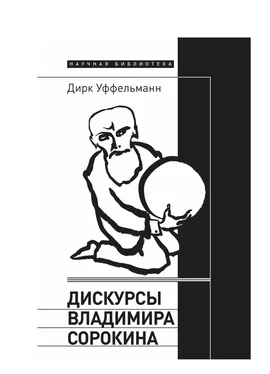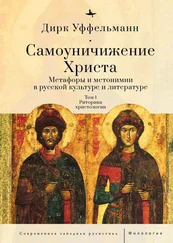Wolodzko-Butkiewicz A. Symbolika zamieci w literaturze rosyjskiej — od Puszkina do Sorokina // Przegl^d Humanistyczny. 2011. 4. S. 3-13.
Wood T. Howling Soviet Monsters // London Review of Books. June 30, 2011. P. 32-33.
Yurchak A. Everything Was Forever, Until It Was No More: The Last Soviet Generation. Princeton (NJ): Princeton University Press, 2006.
Zakhar’in D. «Onania» im Spiegel der russischen Postmoderne // Burkhart D. (Hg.). Poetik der Metadiskursivitat: Zum postmodernen Prosa-, Film- und Dramenwerk von Vladimir Sorokin. MUnchen: Sagner, 1999. S. 167-177.
Zdravomyslova E. The Cafe Saigon Tusovka: One Segment of the Informal-Public Sphere of Late-Soviet Society // Humphrey R., Miller R., Zdravomyslova E. (eds.). Biographical Research in Eastern Europe: Altered Lives and Broken Biographies. Aidershot, Burlington (VT): Ashgate, 2003. P. 141-177.
Zdravomyslova E., Voronkov V. The Informal Public in Soviet Society: Double Morality at Work // Social Research. 2002. 69.1. P. 49-69.
1
Uffelmann D. Vladimir Sorokin’s Discourses: A Companion. Boston (MA): Academic Studies Press, 2020. Авторский перевод на немецкий последовал годом позже: Uffelmann D. Vladimir Sorokins Diskurse. Ein Handbuch. Heidelberg: Winter, 2021.
2
Uffelmann D. The Compliance with and Imposition of Social and Linguistic Norms in Sorokin’s «Norma» and «Den’ oprichnika» // Lunde I., Paulsen M. (eds.). From Poets to Padonki: Linguistic Authority and Norm Negotiation in Modern Russian Culture. Bergen: University of Bergen, 2009. P. 143-167.
3
Uffelmann D. Led tronulsia: The Overlapping Periods in Vladimir Sorokin’s Work from the Materialization of Metaphors to Fantastic Substantialism // Lunde I., Roesen T. (eds.). Landslide of the Norm: Language Culture in Post-Soviet Russia. Bergen: University of Bergen, 2006. P. 100-125.
4
Uffelmann D. Eurasia in the Retrofuture: Dugin’s «tellurokratiia», Sorokin’s «Telluriia», and the Benefits of Literary Analysis for Political Theory // Die Welt der Slaven. 2017. 62.2. P. 360-384.
5
Uffelmann D. The Chinese Future of Russian Literature: «Bad Writing» in Sorokin’s Oeuvre // Roesen T., Uffelmann D. (eds.). Vladimir Sorokin’s Languages. Bergen: University of Bergen, 2013. P. 170-193.
6
Uffelmann D. Marina Himmelfahrt und Liquidierung: Erniedrigung und Erhohung in Sorokins Roman «Tridcataja ljubov’ Mariny» // Wiener Slawistischer Almanach. 2003. № 51. S. 289-333.
7
Uffelmann D. Spiel und Ernst in der intertextuellen Sinnkonstitution von Vladimir Sorokins «Metel’» // Poetica. 2012. 44.3/4. S. 421-441; сокращенная версия на русском: «Сорокин давно уже Толстой»: О метаклассике // Славянские чтения. 2019. № 13. С. 167-174.
8
Ср.: Sorokin V. Afterword: Farewell to the Queue. Trans. J. Gambrell // Sorokin V. The Queue. New York: New York Review Books, 2008. P. 258.
9
Clark K. The Soviet Novel: History as Ritual. 3rd edition. Bloomington (IN), Indianapolis: Indiana UP, 2000. P. 210-211.
10
Фирсов Б. Разномыслие в СССР: 1940-1960-е годы. История, теория и практика. СПб.: Изд-во Европейского ун-та в Санкт-Петербурге, 2008. С. 46.
11
Shlapentokh V. Public and Private Life of the Soviet People: Changing Values in PostStalin Russia. New York et al.: Oxford UP, 1989. P. 153.
12
Юрчак А. Это было навсегда, пока не кончилось: Последнее советское поколение. М.: Новое литературное обозрение, 2014. С. 55.
13
Klepikova Т. Crossing Soviet Thresholds: Privacy, Literature, and Politics in Late Soviet Russia: PhD dissertation. University of Passau, 2018. P. 42.
14
Cp.: Boym S. Common Places: Mythologies of Everyday Life in Russia. Cambridge (MA), London: Harvard UP, 1994. P. 94.
15
Фирсов Б. Разномыслие в СССР.
16
См.: Glanc Т. Autoren im Ausnahmezustand: Die tschechische und russische Parallelkultur. Munster: LIT, 2017. S. 239-240.
17
Ritter M. Alltag im Umbruch: Zur Dynamik von Offentlichkeit und Privatheit im neuen Russland. Hamburg: Kramer, 2008. S. 142-154.
18
Zdravomyslova E., Voronkov V. The Informal Public in Soviet Society: Double Morality at Work // Social Research. 2002. 69.1. P. 57.
19
Cp.: Jackson M. J. (ed.). The Experimental Group: Ilya Kabakov, Moscow Conceptualism, Soviet Avant-Gardes. Chicago (IL), London: The University of Chicago Press, 2010. P. 108, 178.
20
Cm.: Orens G. Sorokin, Vladimir // Curry J., Ramm D., Rich M., Rolls A. (eds.). World Authors 2000-2005. New York, Dublin: H. W. Wilson, 2007. P. 703.
21
Сорокин В., В. Б. «Мы все отравлены литературой» // Арба. 2004. Январь: http ://www. arba.ru/ art/849/7.
22
Сорокин В., Генис А., Вайль П. Вести из онкологической клиники [интервью] // Синтаксис. 1992. № 32. С. 139.
См.: Владимир Сорокин // 24smi. 2017: http://24smi.org/celebrity/5129-vladimir-sorokin.html.
24
Скоропанова И. Русская постмодернистская литература: Новая философия, новый язык. СПб.: Невский простор, 2002. С. 211.
25
См.: Chitnis R. A. Literature in Post-Communist Russia and Eastern Europe: The Russian, Czech and Slovak Fiction of the Changes, 1988-1998. London, New York: RoutledgeCurzon, 2005. P. 123.
26
Hansen-Love A. A. (ed.). Psychopoetik: Beitrage zur Tagung Psychologie und Literatur. MUnchen 1991. Wiener Slawistischer Almanach Sonderband. 31. Wien: Gesellschaft zur Forderung Slawistischer Studien, 1992.
27
Сорокин В. «Забинтованный штырь» // Там же. С. 566.
28
Weststeijn W. G. De roman van het einde en het einde van de roman: Roman en Norma van Vladimir Sorokin // Armada: Tijdschrift voor wereldliteratuur. 1995. 1.1. В. 39; Kustanovich К. V. Vladimir Georgievich Sorokin (7 August 1955-) // Dictionary of Literary Biography. Vol. 285. Russian Writers since 1980. Farmington Hills (MI): Gale, 2004. P. 302-303; Kasper K. Vladimir Sorokin: Roman // Zelinsky B. (Hg.). Der russische Roman. Koln et al.: Bohlau, 2007. S. 472.
29
См.: Сорокин В., Шаповал С. «В культуре для меня нет табу»: Владимир Сорокин отвечает на вопросы Сергея Шаповала // Сорокин В. Собр. соч.: В 2 т.
Т. 1. М.: Ad Marginem, 1998. С. 18; ср.: Stelleman J. Essen und Nationalist in Sorokins Hochzeitsreise // Pegasus Oost-Europese Studies. 2016. 26. P. 520.
30
Сорокин В. «Забинтованный штырь». С. 568; Sorokin V., Laird S. Vladimir Sorokin (b. 1955) [Interview] // Laird S. Voices of Russian Literature: Interviews with Ten Contemporary Writers. Oxford: Oxford UP, 1999. P. 156.
31
Alaniz J. The Writer’s Speech: Stuttering, Glossolalia and the Body in Sorokin’s A Month in Dachau // Roesen T., Uffelmann D. (eds.). Vladimir Sorokin’s Languages. Bergen: University of Bergen, 2013. P. 214-215; cp.: Sasse S. Texte in Aktion: Sprech- und Sprachakte im Moskauer Konzeptualismus. Munchen: Fink, 2003. S. 222-223.
Читать дальше
Конец ознакомительного отрывка
Купить книгу



